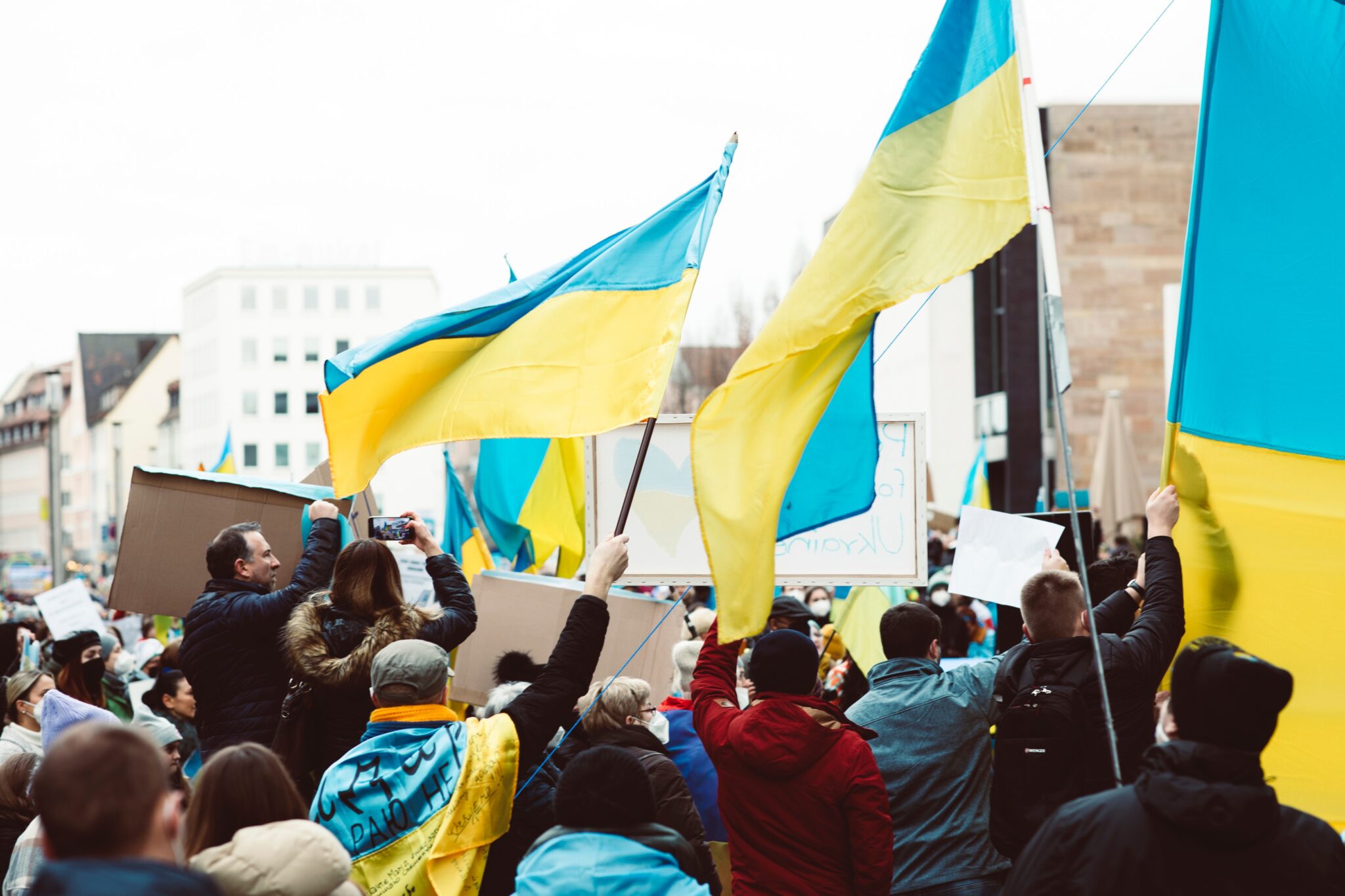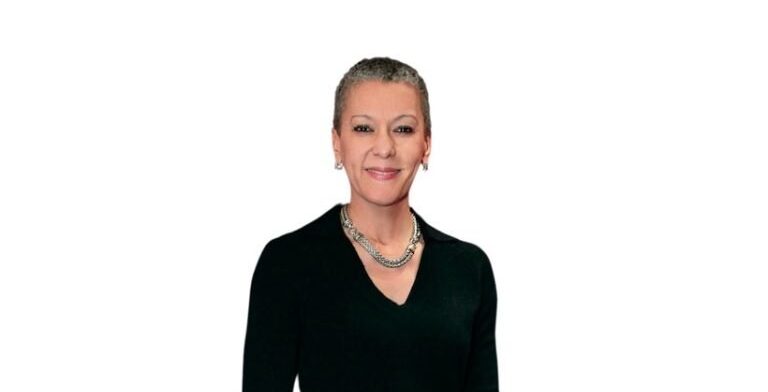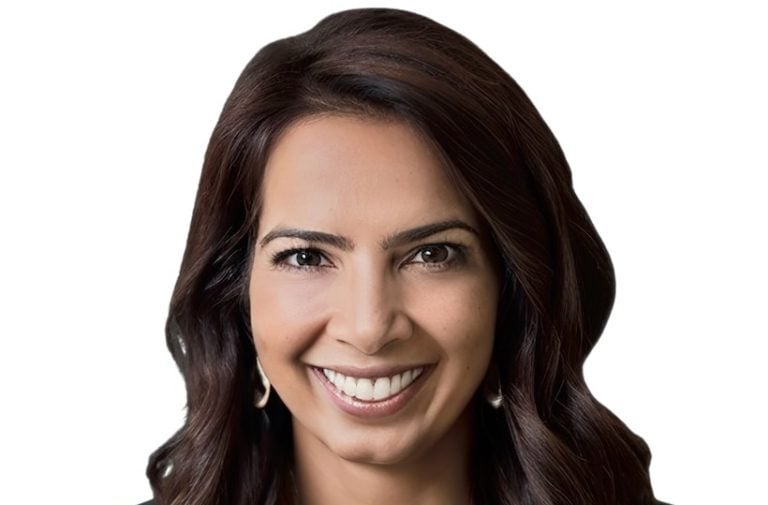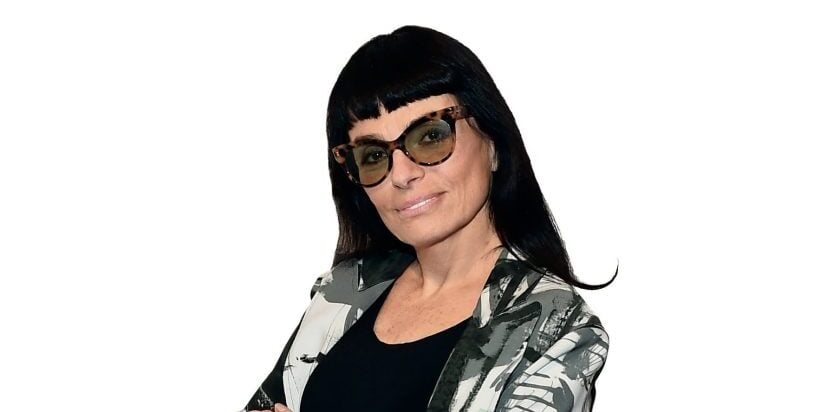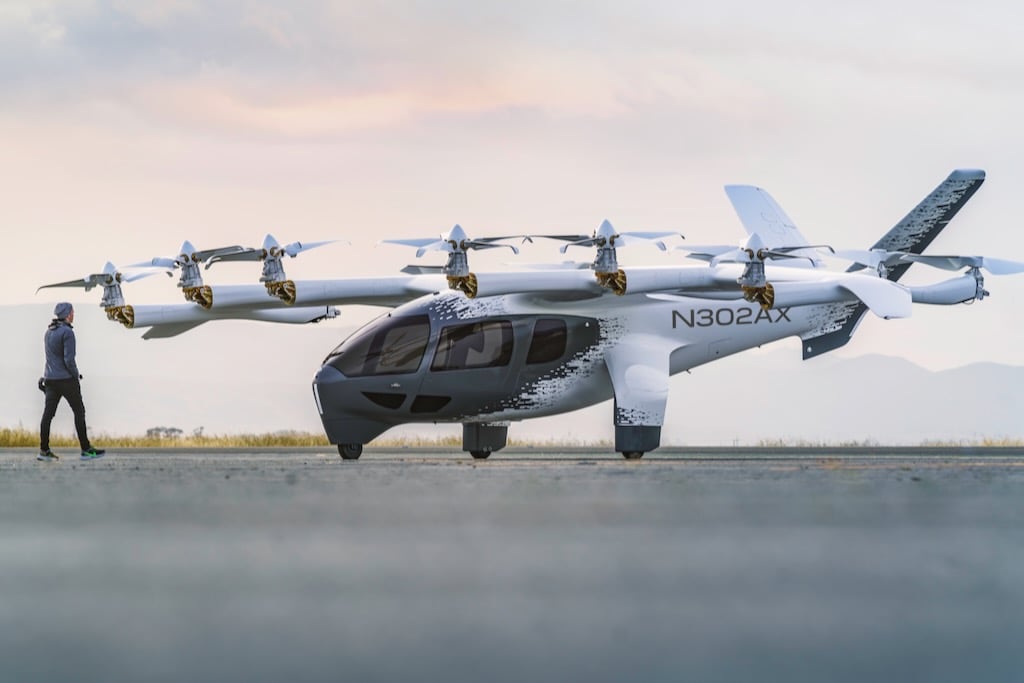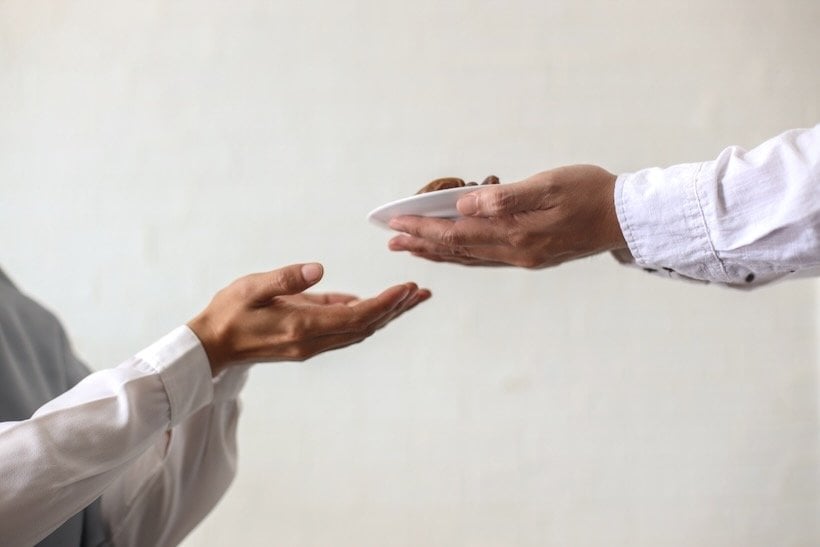Authors’ note: This article was written before a Russian missile slammed into a residential building in Lviv on July 6, killing at least seven and severely damaging the city’s infrastructure.
If you had told us–a couple of lifelong travel and culture enthusiasts–that we would find ourselves delivering badly needed supplies in war-torn Ukraine, we would have been incredulous. Yet, come April, here we are in the cab of a truck, bouncing down a deeply rutted, unpaved road in rural western Ukraine with Renata, our non-English-speaking driver. A few days earlier, rain had made the road impassable. Although it’s now dry, our truck shudders with each new pothole.
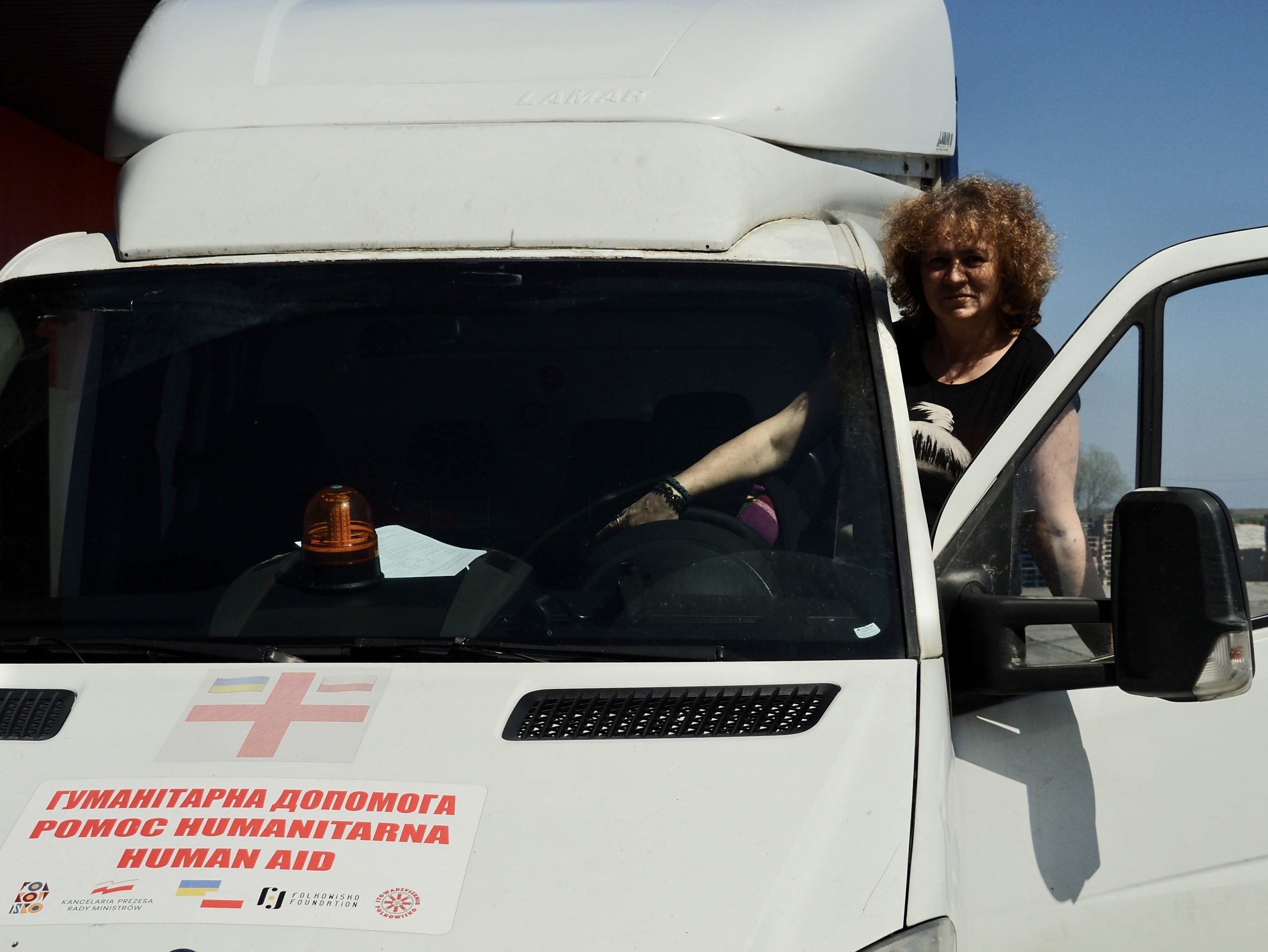
As volunteers with the Polish Humanitarian Aid group Folkowisko, we’re helping deliver ‘life boxes’ to internally displaced refugee families. We know what the boxes contain because we spent the previous day packing them with what appeared to be a haphazard assortment of donated food, including flour, barley, pancake mix, oil, canned meats and fish, toiletries, and lots of chocolate.

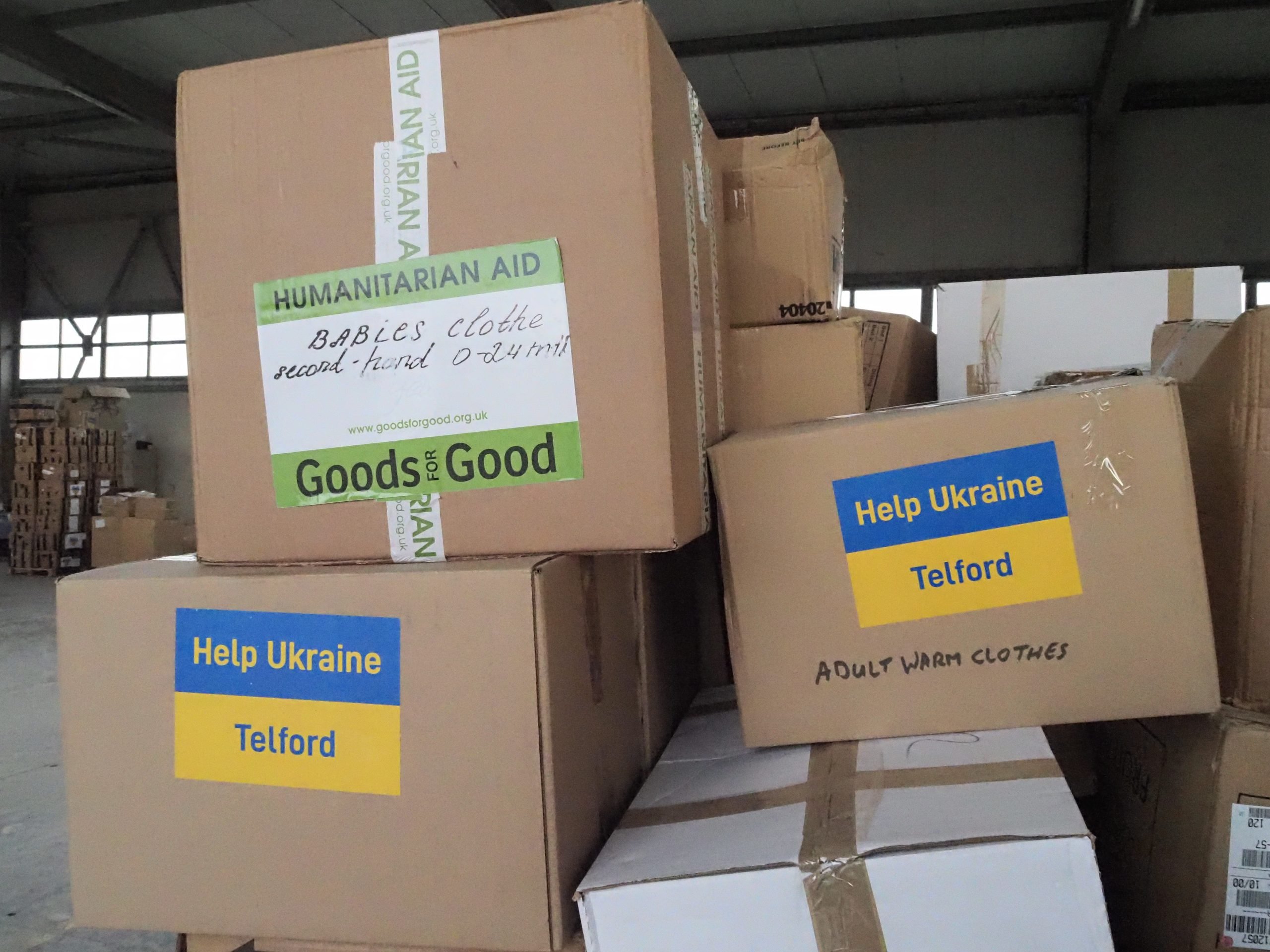
We park in front of a very old, small stone house adjacent to a generic, two-story suburban home with a tidy yard. Our destination stood empty before the arrival of refugees last year from Ukraine’s war-torn East; even now, there’s no running water. Inside, the rooms are darkened by low ceilings and thick walls pierced by deep-set windows. The walls are decorated with carpets and the furniture is dominated by beds, as each multi-generational family has only two or three rooms to share. A wood stove, which occupies half a room, overheats the cramped space. An elderly woman in traditional peasant dress sits on a neatly made bed. Renata offers heartfelt embraces to everyone. There is laughter and, despite the marginal quarters, a warm welcome.
After we finish this delivery, we drive further. At this stop, Renata comforts a grandmother sobbing in despair at the miserable turn her life has taken. Our camera is poised to document the moment but it seems too personal, so we slip away and instead, photograph the one-legged man in her yard fixing a bicycle.
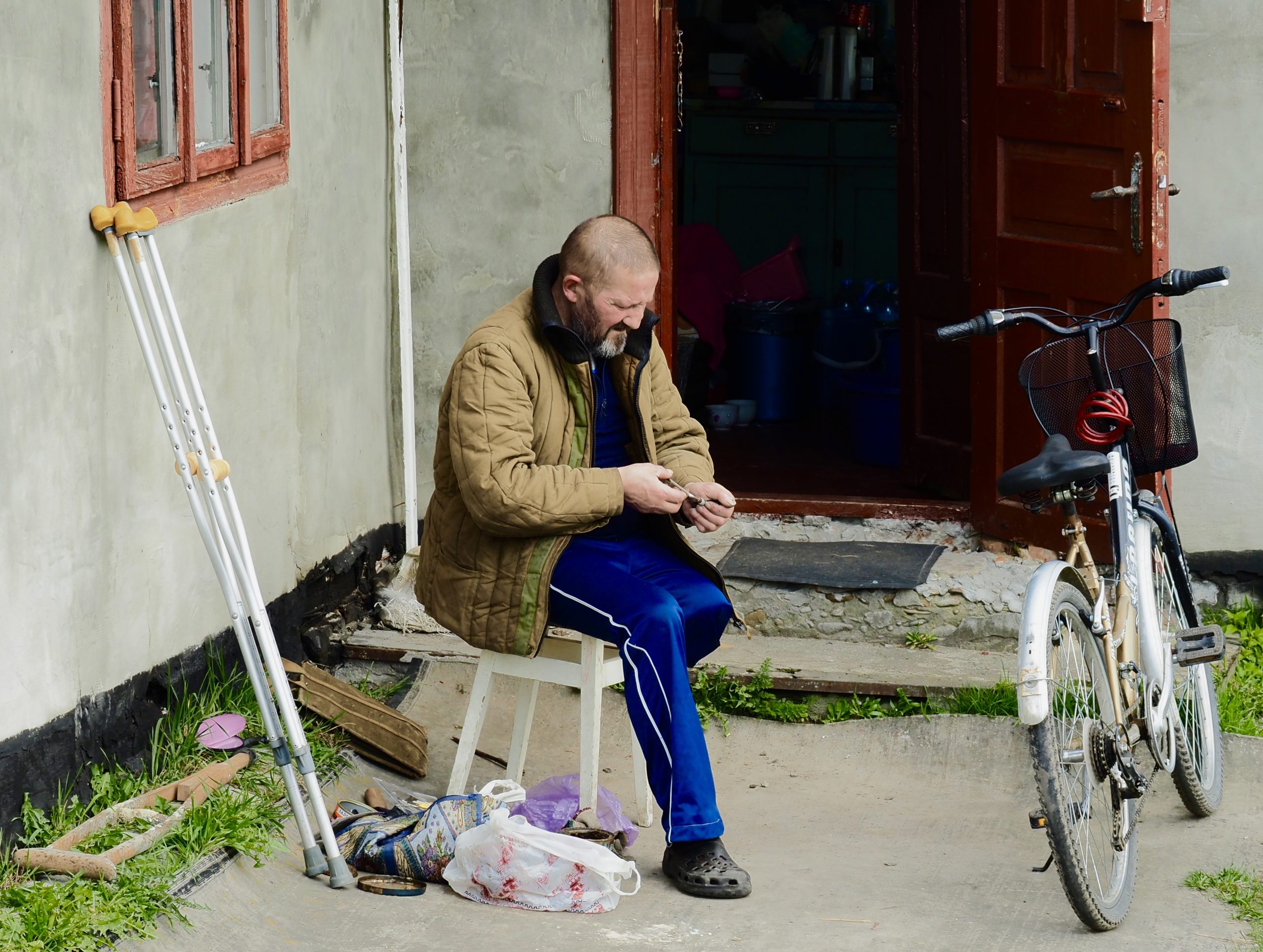
Delivering aid to refugees is not business as usual for us, a pair of financially comfortable baby boomers. But after a winter spent enjoying our usual vacation travel, we realized it was time to do something for someone else. We turned our attention to Ukraine, one of the world’s open wounds. Having heard about the Kosciuszko Foundation, a U.S.-Polish cultural foundation funneling donations to Polish groups helping Ukrainians, we contacted them through a friend. The group put us in touch with Folkowisko’s leader, Marcin Piotrowski, who invited us to assist his group’s efforts in eastern Poland.

During our phone call with Marcin, we offered him a choice: he could either have us as volunteers or we would donate the cost of our airline tickets. “I wasn’t expecting this,” he said. “It’s an easy choice. Come. We need ambassadors to tell the story.” He invited us to stay with him in the guest house section of his home, which also serves as Folkowisko’s pre-war offices.
Folkowisko didn’t start out as an aid organization, but as an outdoor folk music festival producer located about 20 minutes from Ukraine’s border. When Russia attacked on February 24, 2022, Marcin realized his organizational skills could easily be transferred into aid delivery. That first attack was on a Thursday; by Friday he’d organized 30 volunteers to help the first wave of Ukrainian refugees.
Marcin rented a warehouse, reoriented his organization from a cultural to a humanitarian effort, and put the word out that he was providing relief. He told us, “Within a week of the Russian invasion, when millions of refugees started pouring over our border, we had large tents on the Ukrainian side offering medical aid, food, cots, clothing—and hope, the thing many refugees needed most.” Soon, people were coming from all over the world to help them.
Its small size and absence of a governing board make Folkowisko nimble, cementing its importance in the aid effort. By the time the large aid organizations could get “on the ground,” the apex of the crisis had already passed.
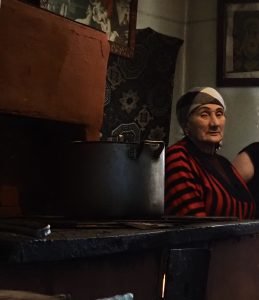 By the time we arrived, 15 months into the war, over half of the refugees had returned to Ukraine, living in temporary quarters in the west. Bringing supplies to them is one of Folkowisko’s missions. More organizationally impressive, the agency acts as a central clearinghouse for worldwide donations of food, clothing, and medical supplies, which they transport across the border to warehouses, Ukrainian distribution centers, and back alleys. From there, others take the goods further east to the soldiers on the front lines, and civilians, such as nursing home residents, forced to remain there.
By the time we arrived, 15 months into the war, over half of the refugees had returned to Ukraine, living in temporary quarters in the west. Bringing supplies to them is one of Folkowisko’s missions. More organizationally impressive, the agency acts as a central clearinghouse for worldwide donations of food, clothing, and medical supplies, which they transport across the border to warehouses, Ukrainian distribution centers, and back alleys. From there, others take the goods further east to the soldiers on the front lines, and civilians, such as nursing home residents, forced to remain there.
At a stop in a narrow alley lined with dilapidated storage shacks, we were met by a Ukrainian journalism professor and his wife. They filled their small hatchback with our energy drinks and whiskey, bound for the soldiers. This mild-mannered, highly educated couple was risking their lives for their country.
An Unusual Tour
Not surprisingly, when we told our friends and family about our travel plans, they were worried. They didn’t realize that Ukraine is Europe’s largest country, and the west, where we would be, is 350 miles away from air attacks and 750 miles from the front lines. However, as a precaution, the head of the Kosciuszko Foundation strongly suggested we download an air raid app for the Lviv area, which we would be visiting.
Only once did we feel stomach-clenching trepidation. As we waited in Poland for customs clearance to bring a load of supplies to Lviv, the app went off. Fortunately, when we finally crossed into Ukraine, the missile attack was over and the all-clear appeared on our phone. Folkowisko’s staff, who live with these attacks, were unfazed.
Our almost daily delivery route passed several cemeteries where newly placed Ukrainian blue and yellow flags marked the fresh graves of fallen soldiers. We stopped at one site to pay our respects and, through unexpected tears, acknowledged their sacrifice. Even more unsettling was a football-sized field on the outskirts of Lviv, now being used as a vast burial ground, with countless new graves between mounds of freshly upturned earth.
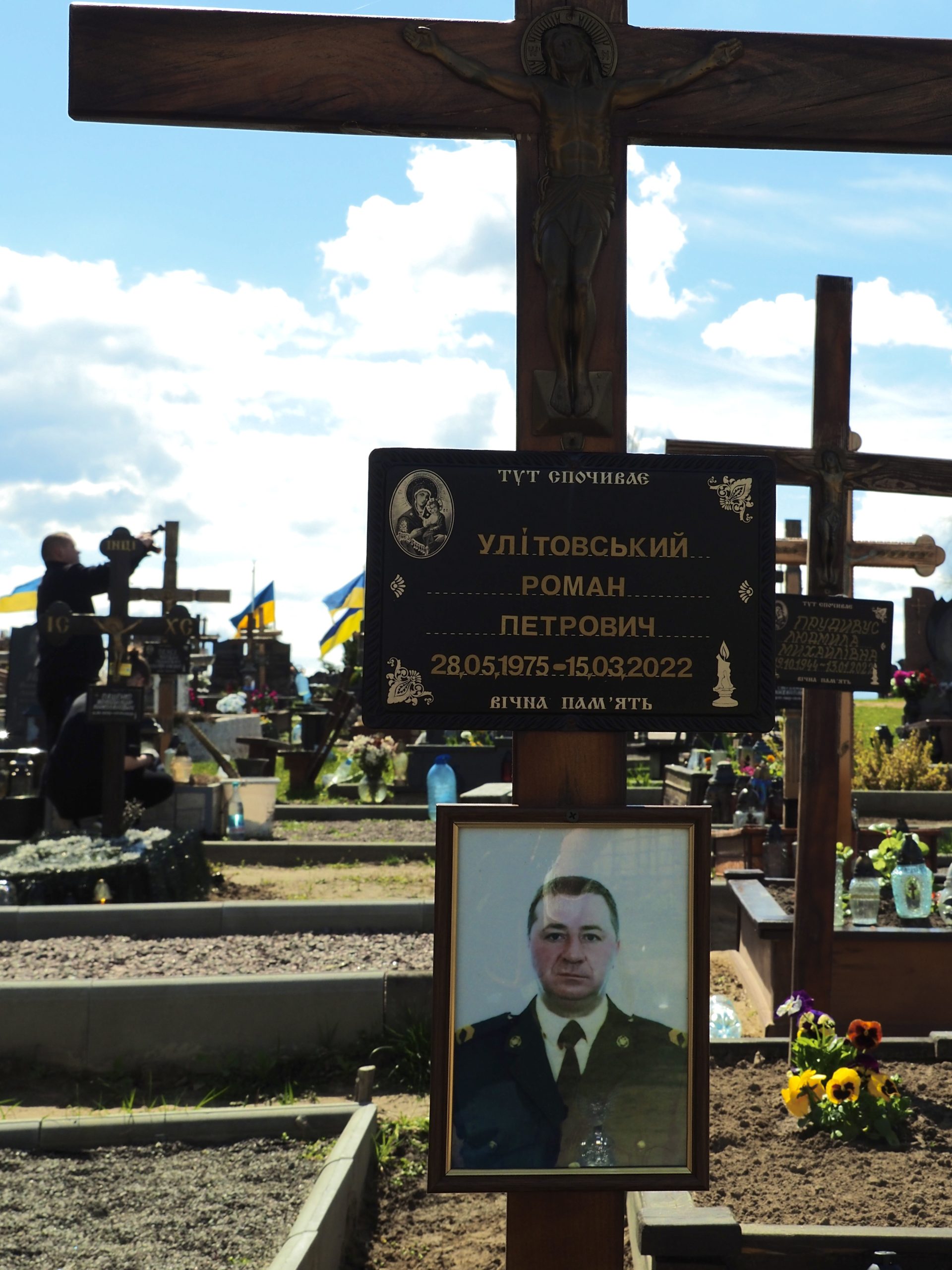
This region has a long history as a sea of slaughter. Passing a bucolic field, we were informed that the benign-looking expanse hides a mass grave where Jews were slaughtered by Nazis. It was further explained that Poland has lived with centuries of conflict with Ukraine, Russia, and Germany.
Long Days and Camaraderie
Folkowisko’s dedicated but disparate staff works with remarkable harmony. Over the last year, they have spent more time with each other than with their families, and several have coupled. Each morning, after cigarettes, they meet to frankly discuss what went right and wrong (usually involving the border crossing) the day before. Then, in a fluid process, pending tasks are assigned.
The staff is comprised not only of Poles but also two Ukrainian men who relocated to help the relief effort. The two men couldn’t be more different. Misha was a soldier until a land mine obliterated the right side of his face. When we met him, he had been so skillfully reconstructed by volunteer American plastic surgeons that, even on close examination, we couldn’t tell he had a false eye and a titanium nose. The explosion left him toothless. Misha refused reconstructive dental work because recovery would reduce the time he could be of service. As far as we could tell—and, since he was one of the two drivers, we were in a truck cab with him for countless hours—Misha’s diet consisted of the three C’s: Coca-Cola, coffee, and cigarettes. The other Ukrainian was Vova, a charming, erudite attorney fluent in six languages, who decided he could be of more help from the Polish side of the border. He was Marcin’s right hand.
Working this intensely takes a toll. In a candid moment, Vova confided, “I can stop, but I can’t relax. I’m afraid if I stop, I will drown in grief.”
A Moment of “Normalcy”
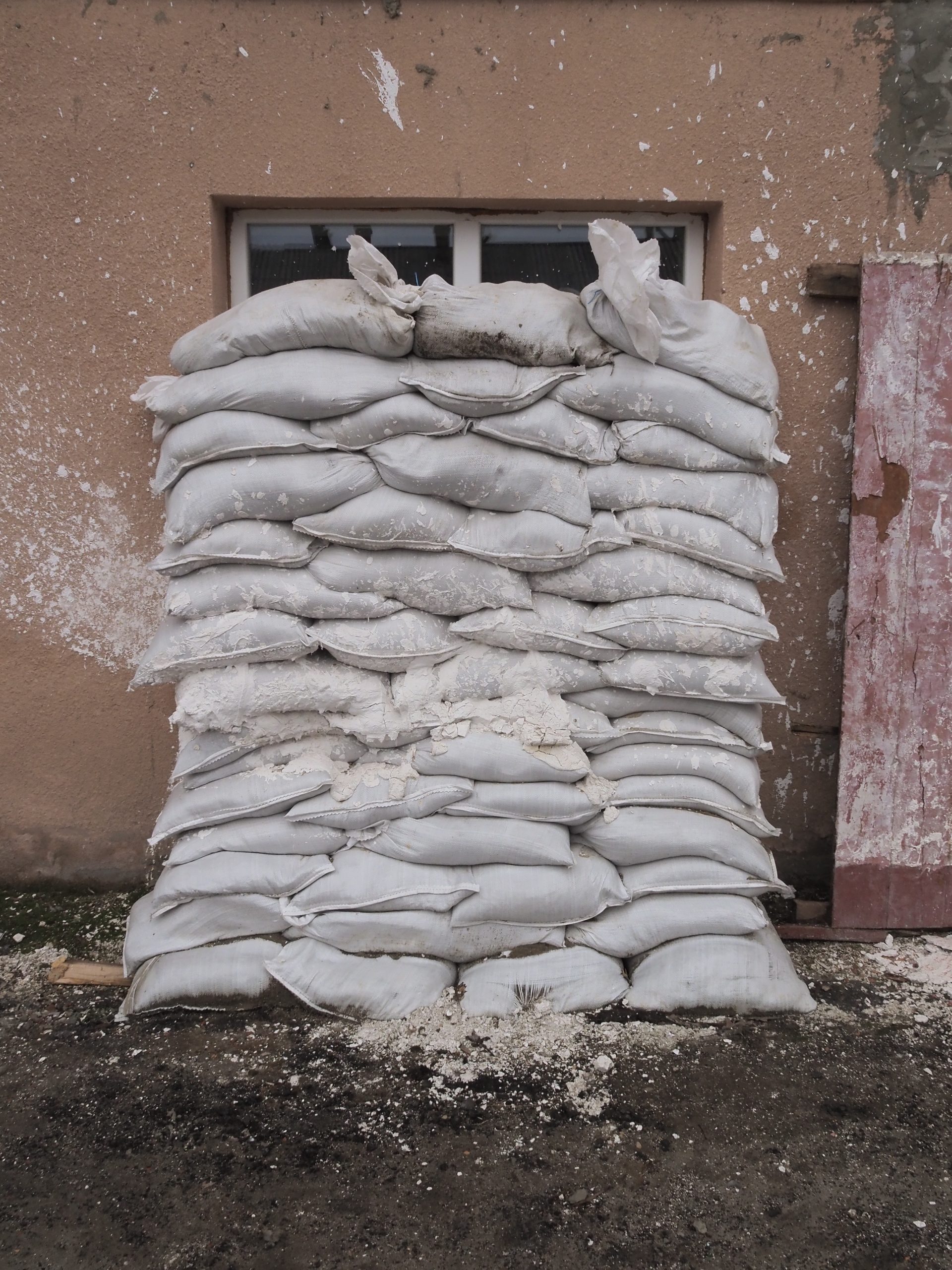
People in war-torn parts of the world do their best to continue with their pre-war lives. We witnessed this on our weekend “vacation” to historically intact, sophisticated Lviv, a classical European city 45 miles east of the Polish border. Tourists were shopping for sunglasses, sampling artisanal beer, listening to buskers, and sitting in outdoor cafes. Scores of uniformed soldiers on leave strolled the cobbled streets with their partners. But reminders of the possibility of attack were never far away. Ground floor windows were shielded by sandbags, an evening curfew was in place, and children played a shooting game using Putin as the target.
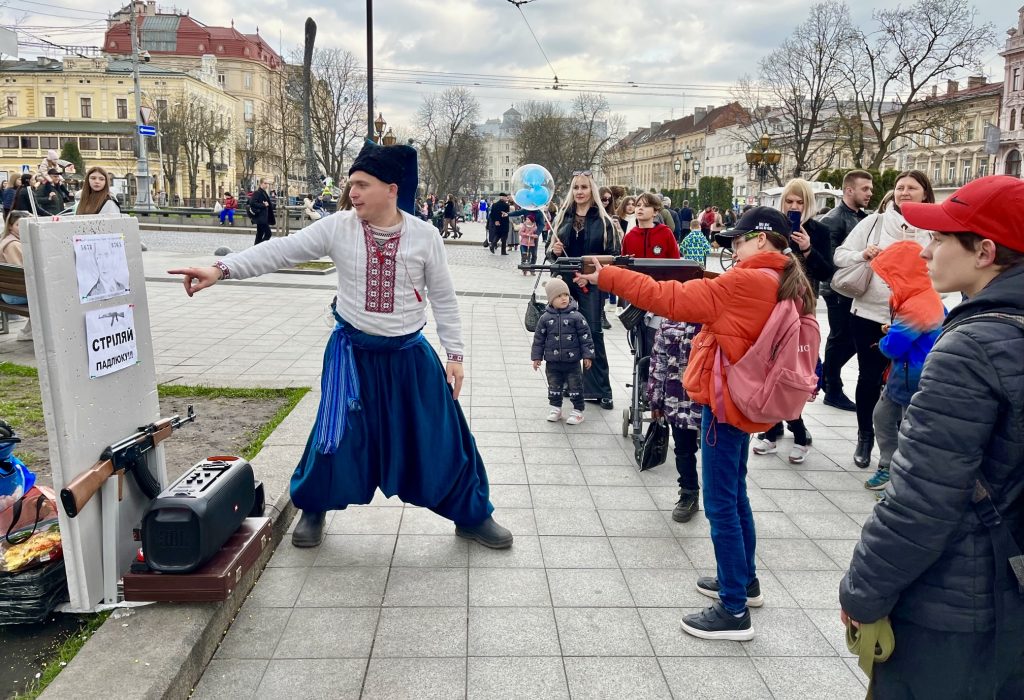
The Lviv locals appeared deeply moved by our presence. Everyone thanked us, including an elderly, woman who pressed her Palm Sunday cake into our hands, insisting we take it, moving us, once again, to tears.
Knowing one way we could help was to spend money in an area that previously relied on tourism, we bought many items, mostly from small vendors, and allowed ourselves a daily treat of their special coffee, made by swirling an ibrik—a Turkish-style coffeepot—in hot black sand.
This type of travel isn’t for everyone, but we found the experience transformative in ways a typical vacation is not. When it came time to say goodbye to our new Folkowisko friends, we were sad. Working closely with them, even though it had lasted less than two weeks, resulted in surprisingly deep bonds. At home, using a translation app, we continue to stay in touch with Renata and we now follow news of the war on a visceral level.
Because of multiple daily warnings, we thought it best to remove the air raid app from our phones, but our connection to this war remains strong.
Contributions to Folkowisko can be made through the Kosciuszko Foundation’s website.

